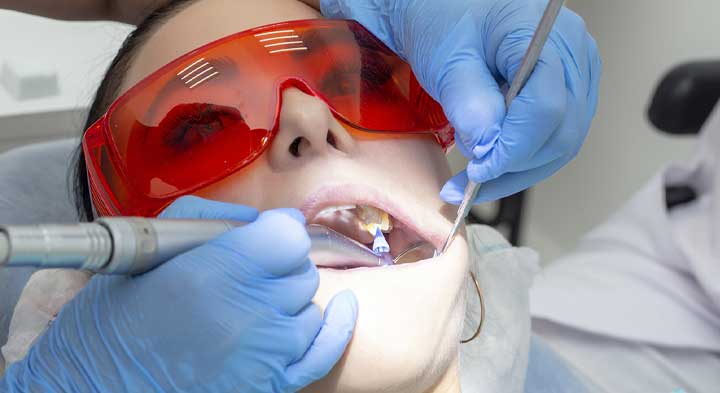In root canal therapy, the goal is to save a tooth that has been badly damaged by decay, disease, or injury.
East Side Dental Tweet
What Is Root Canal Therapy?
In root canal therapy, the goal is to save a tooth that has been badly damaged by decay, disease, or injury. Root canal treatment saves millions of teeth each year from extraction. In general, people prefer to save their natural teeth because they function better than artificial ones.
Biting and chewing are usually more efficient with your own teeth. Natural teeth are much easier to clean and maintain. No matter how good an artificial tooth is, it will never be anything more than a substitute for a natural tooth. The loss of a tooth can lead to problems with biting, chewing, and oral health.
In some cases, teeth nearby can shift out of their normal position and lean into an empty space caused by a missing tooth. This can make chewing and biting difficult and may cause gum disease and tooth decay around the tilted teeth.
Most root canal treatments are successful. Taking good care of a treated tooth can ensure that it will last many years and possibly for life.
The dentist will not treat your tooth unless it is likely to be successful. In some cases, root canal treatment may not be the best option, and extraction may be the only option. Root canals are performed by all general dental practitioners.
Occasionally, a patient’s dentist may refer them to a specialist dentist called an “endodontist” who specializes in root canal treatment. An infection or inflammation of the tooth pulp can lead to pain, sensitivity to heat or cold, tooth discoloration, and swelling or soreness in the gums surrounding the tooth. An infected or severely inflamed pulp requires root canal treatment in order to preserve the tooth.
What Is Tooth Pulp?
The pulp is a soft tissue deep inside a tooth. Pulp contains blood vessels, nerves, as well as connective tissue. It extends from the crown of the tooth to the tip of each root. The pulp is essential for the growth, development, and health of the tooth. Nonetheless, a fully developed tooth can function normally without a pulp if it has been treated successfully with a root canal.
ROOT CANAL TREATMENT
The endodontist or dentist removes the damaged area of the tooth, cleans and disinfects it. The common causes include infection deep within the tooth. This usually occurs when the pulp inside the tooth becomes infected with bacteria because of an untreated cavity or severe injury. The term ‘root canal’ comes from the canals inside the tooth’s root. The dental pulp inside the canal can become infected a cracked tooth or more often due to deep cavity. The treatment involves removing the infected pulp, cleaning and disinfecting it. The dentist then fills and seals it.
Pain, if any, usually lasts only a few days; not every patient will experience it. People may find it helpful to take a mild pain reliever such as aspirin, ibuprofen, or paracetamol.
Get in touch
Call us to schedule your comprehensive dental exam now at (07) 4151 7305. Also, this Bundaberg dentist has a special interest in wisdom teeth removal and dental implants.
